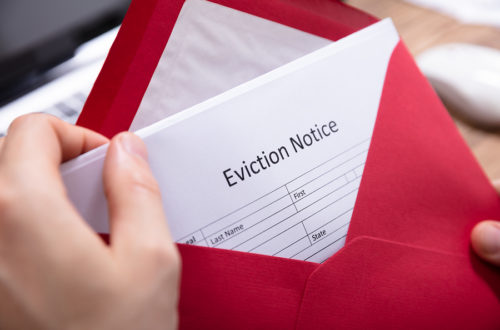Filing for bankruptcy gives individuals a financial fresh start, relieving the stress of debt and collection calls. However, declaring bankruptcy can add some additional obstacles to the apartment- hunting process, but not to worry: You can rent an apartment after declaring bankruptcy. It comes down to the application process, and we have some important tips for you.
Honesty Is the Best Policy.
It can be tempting to want to hide the fact that you recently filed for bankruptcy, but unless the apartment or rental home is a property that does not require a credit check for rental applications, this fact will be discovered quickly. The last thing an applicant wants is for the landlord to find this out after the fact before the renter has any chance to explain the situation. If a bankruptcy is on the individual’s history, it is best to be upfront from the beginning. Honesty is the best policy.
Status of the Bankruptcy and Filing Date
The existence of a bankruptcy case will not necessarily mean the applicant will not be approved to rent an apartment or home. The landlord will also want to know about the status of the bankruptcy case. If it is still ongoing, meaning no discharge has been issued, the landlord may want to hold off on renting to that person, especially if he or she is in the middle of a three-to-five-year long repayment plan in a Chapter 13 case. The same treatment would occur if the applicant is in the middle of a Chapter 7 bankruptcy case. The landlord will also look closely at the filing date of the bankruptcy case.
Understanding the Effect of Bankruptcy
A bankruptcy case will impact a person’s credit score. However, the effect the bankruptcy has on that person’s credit history does decrease over time. Continuing to remain in debt and getting further behind on your bills will have a greater, detrimental effect- not only on your finances, but on your emotional state as well.
The longer it has been since the bankruptcy case concluded, the less of an effect it will have on a potential rental application. A bankruptcy case may also have less of a harmful influence over the application than a collections case will have. The landlord will more likely be turned off by someone who has several defaults and collections actions against him or her than someone who has successfully completed a bankruptcy case. A landlord may also be very hesitant to rent to someone with a poor credit history who has had multiple evictions in the past, as opposed to someone who has had one bankruptcy on his or her record.
Proof of Income
Not all landlords will view a past bankruptcy as a bad thing if the potential renter can provide proof of income. Many landlords will ask for the renter’s job history, and if that person can show that he or she is solidly employed and will be able to keep up on rental payments, the landlord may be more likely to consider renting to that person, despite the fact that he or she has recently gone through bankruptcy.
Employment History
The applicant’s employment history will also play a part in the process. The landlord will want to see job stability, meaning how long the person has been at his or her most recent job. The landlord will want to see the applicant as someone who is stable and not going to be someone who jumps from place to place or from job to job. This history, along with the person’s current income information, can prove to be more powerful than the fact that a bankruptcy occurred in the past.
Tips for Improving Application Chances
The applicant can also provide a few pieces of information that can help the application be approved, including showing a stable history of renting in the past. If the individual has stayed in the same place with consistent rent payments, the fact that he or she has filed for bankruptcy may be less of a harm to his or her application. Additionally, many landlords may request a larger deposit upfront if the bankruptcy case was recently completed, as an insurance behind the application. Finally, a co-signor on the rental application may also help improve chances of the application being approved.
If you have questions on this topic or are in financial crisis and considering filing for bankruptcy, contact an experienced Miami bankruptcy attorney who can advise you of all of your options. As an experienced CPA as well as a proven bankruptcy lawyer, Timothy Kingcade knows how to help clients take full advantage of the bankruptcy laws to protect their assets and get successful results. Since 1996 Kingcade Garcia McMaken has been helping people from all walks of life build a better tomorrow. Our attorneys’ help thousands of people every year take advantage of their rights under bankruptcy protection to restart, rebuild and recover. The day you hire our firm, we will contact your creditors to stop the harassment. You can also find useful consumer information on the Kingcade Garcia McMaken website at www.miamibankruptcy.com.
Related Resources:
https://toughnickel.com/real-estate/ten-tips-for-renting-an-apartment-after-bankruptcy
https://www.nolo.com/legal-encyclopedia/renting-apartment-after-bankruptcy.html

